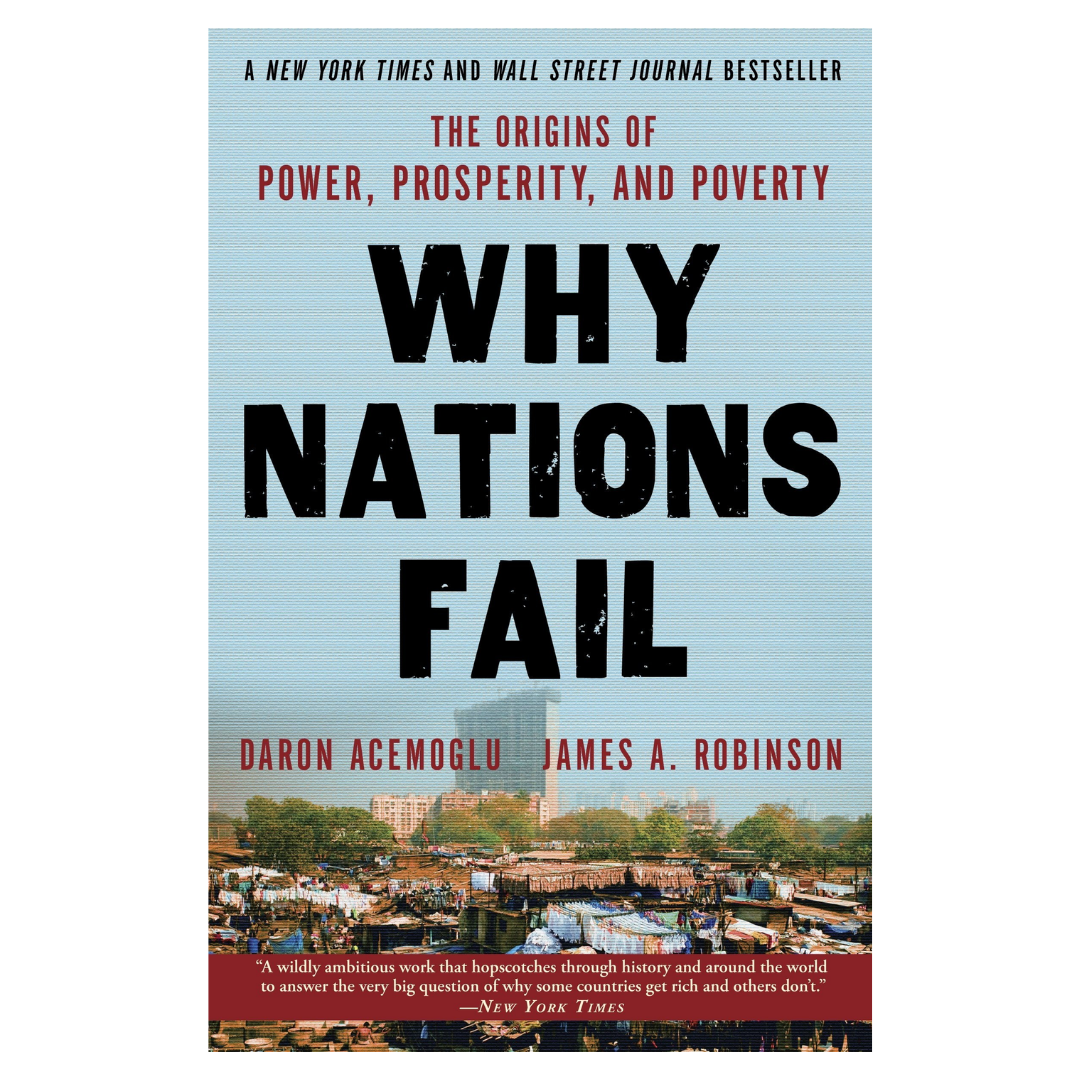
Why Nations Fail

''Why Nations Fail: The Origins of Power, Prosperity, and Poverty'' by James A. Robinson is a thought-provoking and comprehensive analysis of why some nations prosper while others fail. The book explores the historical, economic, and political factors that contribute to a nation's success or failure, and argues that inclusive institutions are the key to long-term prosperity. Robinson and his co-author, Daron Acemoglu, use a wide range of examples from around the world to demonstrate their thesis, including ancient Rome, modern-day China, and the United States. Whether you're an economist, historian, or simply interested in the fate of nations, Why Nations Fail is a must-read.
Some of the most important points of the book include:
- The crucial role of inclusive institutions, which create a level playing field for all members of society, in promoting economic growth and development
- The ways in which extractive institutions, which concentrate power and wealth in the hands of a few, stifle innovation and growth
- The importance of a strong civil society, including independent media and free elections, in promoting inclusive institutions
- The dangers of political centralization, which can lead to extractive institutions and stifle innovation
- The critical role of history in shaping a nation's institutions and its long-term prospects
Details of the book:
- Author: James A. Robinson
- Publisher: Crown Publishing Group
- Pages: 544
- Publication date: March 20, 2012
- Language: English

